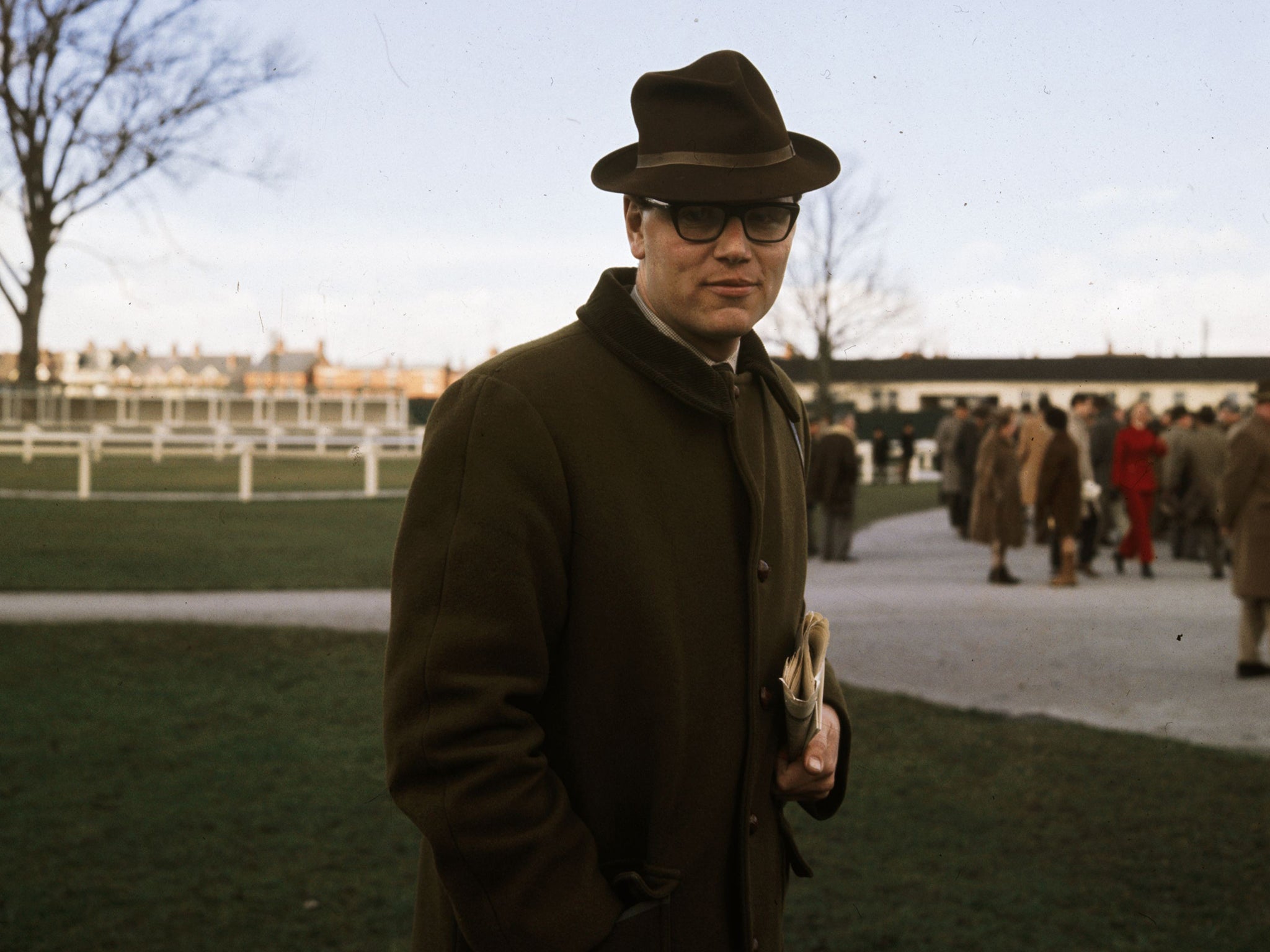Toby Balding: Racing trainer who won both on the Flat and over jumps and was an expert nurturer of human and equine talent

The name of Balding has long been one of the most instantly recognised in racing circles, and these days is even known beyond the fence that divides the increasingly abstruse world of the Turf from wider sporting circles. But none of the family can approach the achievements and legacy of perhaps its least-known member (certainly to the lay observer), and the affection and respect he commanded. Toby Balding has been labelled as the brother of Derby-winning trainer Ian and uncle of the ubiquitous Clare. Surely, though, they would be prouder to be known as his sibling and niece.
Balding, called Gerald Barnard after his father but always known as Toby to avoid confusion, was born in New Jersey just before the war and spent his early childhood in the US. His upbringing was privileged, but not because he came from aristocratic stock like many in equestrian circles; his grandfather Bert, rumoured to be descended from gypsies, was an exceptional horseman and dealer in horseflesh and made good money from his talents.
The privately educated senior Gerald Barnard went on to become one of the finest polo players ever produced in Britain, a profession which took him to the US and its sporting high society. After the war he and his American wife Ellie and their two sons returned to England, where the boys completed their education at Marlborough College and Toby went on the National Service in the Life Guards.
The early death of Gerald Barnard from liver cancer in 1956 left his eldest son in charge of the family stables at Weyhill in Hampshire. At the age of 21 Balding was then the country’s youngest racehorse trainer, and though his career was rather thrust upon him he quickly showed he had all the family feeling for equine athletes.
In his early days he had the support of one of one of America’s greatest Anglophile owners, Jock Whitney (at the time the US Ambassador to London) and kept the business afloat financially when landing a massive gamble in the 1959 Portland Handicap, one of the season’s most competitive sprints, with the 25-1 outsider New World.
For nearly 50 years Balding ran an extremely successful dual-purpose operation (both Flat and jump horses), mostly at Weyhill with brief spells elsewhere. He was as adept at handling five-furlong sprinters as long-distance steeplechasers and was extremely shrewd at targeting his charges, and though he did not have top-class Flat ammunition he won many of the calendar’s top handicaps. Quality-wise, he had better steeplechasers and hurdlers and is one of the few to have won all three of that branch of the sport’s most famous prizes, the Cheltenham Gold Cup, Champion Hurdle and Grand National, mostly with horses unfancied outside their own stable.
He took the Aintree showpiece twice, in 1969 with the veteran American-owned Highland Wedding, the 100-9 third favourite, and 20 years later with another 12-year-old, Little Polveir, at 28-1. He also won two Champion Hurdles, with the 50-1 shot Beech Road in 1989 and with Morley Street, the 4-1 favourite, in 1991; and the Gold Cup with Cool Ground, who beat The Fellow by a short-head in 1992 at 25-1. The versatile Morley Street was the best horse he trained; the gelding won 20 of his 45 races, including four editions of the prestigious Aintree Hurdle and two Breeders’ Cup Steeplechases in New York.
But as much as Balding was a spotter and nurturer of equine talent, he was as good – if not better – with people. He guided and established the early career in Britain of no less than Tony McCoy; other leading riders he fostered included Adrian Maguire, Bob Champion and Richard Linley. Balding took huge pleasure in his protégés’ progress and was, despite failing health, bang in the centre of the celebrations when McCoy reached the landmark of 4,000 winners at Towcester last November. The 19-times champion paid his old boss the tribute of describing him as his “ultimate mentor.”
Balding retired, aged 68, at the end of 2004, with more than 2,000 winners on his CV, the first of which had been Bowerchalke at Wolverhampton. By then his wife Caro, whom he had met in the hunting field and whom he always described as his linchpin, was in poor health and died from cancer soon afterwards.
In retirement Balding continued to tirelessly serve the racing industry. He had been a founder of the National Trainers’ Federation, was an independent director at the British Horseracing Authority and an honorary member of the Jockey Club. Three years ago he was awarded the OBE for services to racing, and though he suffered a stroke shortly before he was due to pick up his gong. He determinedly made the journey to Buckingham Palace for the ceremony, despite his sight being impaired.
The tall, bespectacled Balding thoroughly enjoyed life and the challenges and fun it provided, and was as kind, generous and selfless a person any could hope to meet, always encouraging to those making their way up the ladder. “If I’ve a day off you’ll find me at the races,” he once said. “I never viewed training as a job. For me it was a way of life.”
Gerald Barnard (Toby) Balding, racehorse trainer: born New Jersey 23 September 1936; OBE 2011; married 1960 Carolyn (died 2004; two daughters, one son); died 25 September 2014.
Join our commenting forum
Join thought-provoking conversations, follow other Independent readers and see their replies
Comments